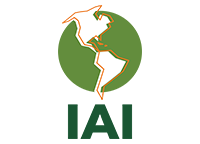Addressing the Groundwater Governance Challenge A call from the ” Groundwater Governance: A Global Framework for Action” Project
| Publicado en | In: Karar E. (eds) Freshwater Governance for the 21st Century. Global Issues in Water Policy, vol 6. Springer, Cham [Book chapter] |
|---|---|
| Autores | de Chaisemartin, M., Varady, R. G., Megdal, S. B., Conti, K. I., van der Gun, J., Merla, A., Nijsten, G.-J., Scheibler, F. |
| Año de publicación | 2016 |
| DOI | https://doi.org/10.1007/978-3-319-43350-9_11 |
| Afiliaciones | UNESCO, International Hydrological Programme (IHP)Neuilly sur SeineFrance, Udall Center for Studies in Public PolicyUniversity of ArizonaTucsonUSA, Water Resources Research CenterUniversity of ArizonaTucsonUSA, International Groundwater Resources Assessment Centre (IGRAC)DelftThe Netherlands, Governance and Inclusive Development, Amsterdam Institute of Social Sciences Research (AISSR)University of AmsterdamAmsterdamThe Netherlands, Van der Gun Hydro-ConsultingSchalkhaarThe Netherlands, UNESCO, International Hydrological Programme (IHP)Paris 07 SPFrance |
| Programa | CRN3 |
| Proyecto | CRN3056 |
| Keywords | |
 Addressing the Groundwater Governance Challenge c.pdf Addressing the Groundwater Governance Challenge c.pdf |
Abstract
This chapter provides an overview and thus contributes to a better understanding of the world&rsquos groundwater resources, their distinctiveness and their governance. It describes the principal elements of and key instruments employed in groundwater governance. To this end, the authors introduce several case studies from across the globe and offer some corresponding lessons learnt. In particular, this chapter presents an analysis of the role of monitoring and assessment in groundwater governance, showcasing the example of The Netherlands. A global diagnostic of the current state of groundwater governance is provided, based on information from a set of commissioned thematic papers and the outcomes of five subsequent regional consultations carried out within the framework of a GEF-supported project on Global Groundwater Governance. It includes insights into some of the findings of that project regarding the four main components of groundwater governance: actors, national legal frameworks, policies and information and knowledge. In addition, the authors address the issue of governance of transboundary groundwater resources and the relevant existing international legal frameworks. In conclusion, through a Global Vision for 2030, the chapter presents a way forward to govern groundwater and a Framework for Action to achieve good governance, formulated by the Groundwater Governance Project jointly implemented by UNESCO, FAO, World Bank and IAH.
